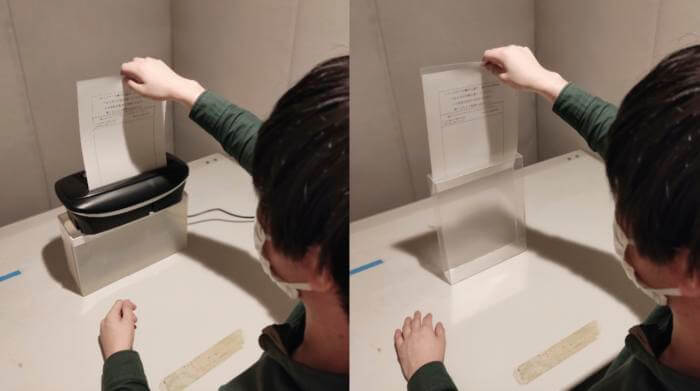NAGOYA, Japan — Many of us have had our fair share of rude interactions we’d prefer to forget. The chances are a few more will inevitably happen in the future. However, the next time you find yourself fuming over an insult or ill-mannered remark, researchers from the University of Nagoya say writing down your reaction to a negative incident on a piece of paper and then shredding it can help reduce feelings of anger.
“We expected that our method would suppress anger to some extent,” lead researcher Nobuyuki Kawai says in a statement. “However, we were amazed that anger was eliminated almost entirely.”
Left uncontrolled, anger can destroy a person’s life, both at home and in the workplace. Unfortunately, many anger management techniques proposed by specialists lack empirical research support. Moreover, it’s often difficult to remember to use those strategies in the heat of the moment.
These latest findings, meanwhile, come as the culmination of years of prior work focusing on the association between the written word and anger reduction. This study builds on work showing how interactions with physical objects can influence a person’s mood as well.
For the study, Kawai and his graduate student Yuta Kanaya, both at the Graduate School of Informatics, Nagoya University, asked a group of study participants to write down some brief opinions about important social problems, like whether smoking in public should be illegal. Next, participants were told that doctoral students at Nagoya University would be evaluating their writing.
In reality, however, the “doctoral students” doing the evaluation were plants. No matter what participants wrote, the evaluators gave out low scores for intelligence, interest, friendliness, logic, and rationality. To really make their point, the fake doctoral students all added the same insulting comment: “I cannot believe an educated person would think like this. I hope this person learns something while at the university.”
After receiving their negative grades, participants had to write down their thoughts on the feedback, focusing on what triggered their emotions. One cohort was specifically told to either dispose of the paper they wrote in a trash can or keep it in a file on their desk. A second cohort had to either destroy the document in a shredder or put it in a plastic box.

Next, students rated their anger after the insult, as well as after either disposing of or keeping the paper. As researchers expected, everyone reported feeling angrier immediately after getting their insulting grades back. However, anger levels among individuals who discarded their paper in the trash can or shredded it returned to their initial state after disposing of the paper. Meanwhile, others who had to hold on to a hard copy of the insult experienced just a small decrease in overall anger.
Kawai imagines this research may help businesspeople who often find themselves in stressful situations.
“This technique could be applied in the moment by writing down the source of anger as if taking a memo and then throwing it away when one feels angry in a business situation,” the researcher says.
Besides its practical benefits, this discovery may also shed light on the origins of the Japanese cultural tradition known as hakidashisara at the Hiyoshi shrine in Kiyosu. Hakidashi is the purging or spitting out of something, and sara refers to a dish or plate. At an annual festival, Hakidashisara sees people smash small discs representing things that make them angry. These findings may partially explain the feeling of relief that many report after leaving the festival.
The study is published in Scientific Reports.
